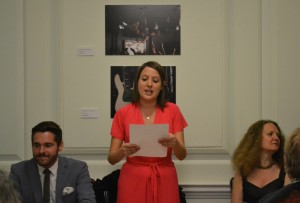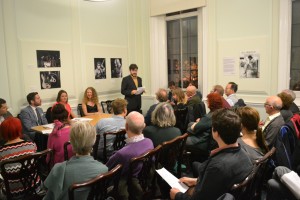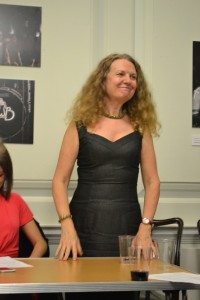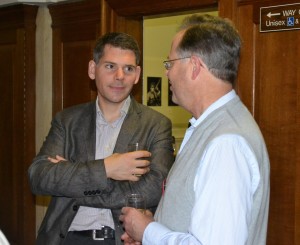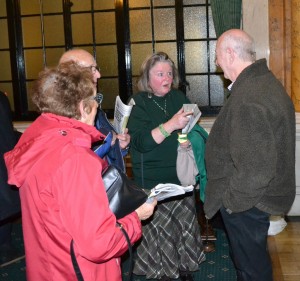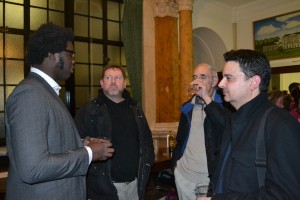Research published today by the Fair Admissions Campaign has shown the extent to which state-funded faith schools discriminate in their admissions on religious grounds and its effect on social and ethnic inclusiveness. Labour Humanists is affiliated to the British Humanist Association (BHA) and supports the Fair Admissions Campaign.
The research has been launched in map form and, for the first time, scores how religiously selective, socio-economically inclusive and ethnically inclusive every mainstream state secondary school in England is. Users are able to see profiles for individual schools, compare and rank different schools in their area and nationally, and see how segregated different denominations, dioceses and local authorities are. It can be viewed at http://fairadmissions.org.uk/map
The research finds that there is a clear correlation between religious selection and socio-economic segregation; one of the key findings is that schools with no religious character admit 11% more pupils eligible for free school meals than would be expected given their areas, while state schools with a Christian, Jewish or Muslim character admit far fewer eligible for free school meals than would be expected given their areas. See notes for more key findings.
Labour Humanists’ Chair Naomi Phillips commented, ‘Religious leaders often claim that faith schools – paid for by the state – are inclusive and serve the local community. This latest research which maps every state secondary school in England shows that is often not the case. Labour principles mean that whichever family you are born into, whatever your background, you have the right to high-quality and inclusive education. Support for the present system of state-funded faith schools clearly goes against those principles, and we urge Labour to change its policy to guarantee that children will not be turned away from their local school on the basis of their parents’ beliefs.
‘Even if religious selection in school admissions was not a proxy for class discrimination – which it demonstrably is – Labour Humanists would still oppose it because we do not believe any state school should refuse children on the basis of whether their parents believe in a god or not.’
Notes
It is our firm belief that state-funded faith schools (about a third of all schools) should be inclusive: we believe that is a Labour value too. We believe that discrimination in admissions by state-funded faith schools is unnecessary, unjust, disastrous for social cohesion, and completely against Labour values. We therefore ask for a commitment to inclusivity and opposing discrimination in admissions by faith schools to be included in Labour’s manifesto for the 2015 general election.
Fair Admissions Campaign full press release:
Groundbreaking new research maps the segregating impact of faith school admissions
The Fair Admissions Campaign has today published groundbreaking research into the extent of religious selection in state schools and its effect on social and ethnic inclusiveness. Launched in map form, for the first time it scores how religiously selective, socio-economically inclusive and ethnically inclusive every mainstream state secondary school in England is. Users are able to see profiles for individual schools, compare and rank different schools in their area and nationally, and see how segregated different denominations, dioceses and local authorities are. It is hoped that the tool will prove useful to parents, schools, and individuals concerned about segregation in school admissions. It can be viewed at http://fairadmissions.org.uk/map. The research combines data from five main sources and hundreds of admissions directories. The map details the proportion of pupils each school is allowed to religiously select in its oversubscription criteria; how many pupils at the school are eligible for free school meals by comparison with its local area; and how many speak English as an additional language. Key findings include:
- Comprehensive secondaries with no religious character admit 11% more pupils eligible for free school meals than would be expected given their areas. Comprehensive Church of England secondaries admit 10% fewer; Roman Catholic secondaries 24% fewer; Jewish secondaries 61% fewer; and Muslim secondaries 25% fewer.
- There is a clear correlation between religious selection and socio-economic segregation: Church of England comprehensives that don’t select on faith admit 4% more pupils eligible for free school meals than would be expected, while those whose admissions criteria allow full selection admit 31% fewer.
- 16% of schools select by religion but they are vastly overrepresented in the 100 worst offenders on free school meal eligibility and English as an additional language. They make up 46 of the worst 100 schools (and 67 out of 100 if we exclude grammar schools) on FSM eligibility and 50 of the worst 100 (55 if we exclude grammar schools) on EAL.
- The most segregated local authority as a result of religious selection is Hammersmith and Fulham. While 15% of pupils nationally are eligible for free school meals, the segregation between the religiously selective schools and other schools is almost double that (27 percentage points).
- The map represents the first time any data has ever been published on the degree of religious selection by faith schools. We estimate that 16% of places at state schools (or 1.2 million) are subject to religious selection criteria. This compares with 5% of secondary places in grammar schools and 7% of all places in independent schools.
- More in depth findings can be found in our briefing.
Chair of the Accord Coalition for Inclusive Education, Rabbi Dr Jonathan Romain MBE said, ‘This new research exposes the hypocrisy of those who claim religiously selective schools serve the community at large. It reveals that they not only further segregate children on religious and ethnic grounds, but also are skewed towards serving the affluent at the expense of the deprived. Crucially, the research also shows that the more a school is permitted to select children by faith, the greater the extent to which it is likely to socio-economically segregate. The data poses some very awkward questions for the state funded faith school sector, especially as many people of faith are appalled that schools that should focus on the poor have become so elitist.’
Andrew Copson, Chief Executive of the British Humanist Association, commented, ‘Today’s findings make clear like never before the devastating effects that faith-based admissions have in segregating communities along socio-economic and ethnic lines. The Archbishop of Canterbury recently commented that Church of England schools are moving away from religious selection. We are yet to see if this is true, but at the same time believe it cannot come true soon enough. In any case, the scale of the problem demands not voluntary effort by religious groups but legislation – government should act now to make these divisive effects impossible by removing the possibility of religious selection in state-funded schools.’
Professor Ted Cantle CBE chaired The Cantle Report into the 2001 race riots, and founded the Institute of Community Cohesion. Professor Cantle commented, ‘This research clearly demonstrates the increasing balkanisation of our school system, with children growing up in separate communities with little chance of learning about others. It shows that education has done nothing to break down the “parallel lives” I described in 2001, rather they have been reinforced.’
Jeremy Rodell is Chair of the Richmond Inclusive Schools Campaign, who last year took a judicial review against two proposed Catholic schools in the hope of establishing more inclusive admissions policies. Mr Rodell commented, ‘The evidence presented by this new data is very clear. We already knew that it is unfair for state-funded schools to discriminate on the basis of religion. But we can now see that the unfairness is compounded because it also disadvantages children who are already disadvantaged. Perversely, those who are the strongest advocates of choice in schooling are apparently happy to defend admissions policies that give some parents far more choice than others simply because of their religious practices, genuine or otherwise. Surely no government, of any political complexion, should allow this to continue.’
Notes For further comment please contact Accord Coalition Chair Jonathan Romain on 07770 722 893, BHA Chief Executive Andrew Copson on 07534 24 8596 or email info@fairadmissions.org.uk. For further information about the map please contact Richy Thompson on 020 7324 3072. The map can be viewed at http://fairadmissions.org.uk/map and a more in depth briefing at http://fairadmissions.org.uk/wp-content/uploads/2013/12/Fair-Admissions-Campaign-map-in-depth-briefing.pdf. Note that unfortunately the map doesn’t work on mobile devices due to the fact that they can only handle about 100 pins (there are over 3,300).
Figures comparing different religious denominations and Dioceses can be seen on the ‘Overall averages’ tab of the map. For a fuller methodology (including how schools’ local area figures are calculated), details of the sources used, responses to possible criticism and answers to other questions please see the ‘FAQs’ tab.
The Fair Admissions Campaign wants all state-funded schools in England and Wales to be open equally to all children, without regard to religion or belief. The Campaign is supported by a wide coalition of individuals and national and local organisations. We hold diverse views on whether or not the state should fund faith schools. But we all believe that faith-based discrimination in access to schools that are funded by the taxpayer is wrong in principle and a cause of religious, ethnic, and socio-economic segregation, all of which are harmful to community cohesion. It is time it stopped.
Supporters of the campaign include the Accord Coalition, the British Humanist Association, Professor Ted Cantle and the iCoCo Foundation, the Association of Teachers and Lecturers, British Muslims for Secular Democracy, the Campaign for State Education, the Centre for Studies on Inclusive Education, the Christian think tank Ekklesia, the Hindu Academy, the Green Party, the Liberal Democrat Education Association, Liberal Youth, the Local Schools Network, Richmond Inclusive Schools Campaign, the Runnymede Trust, the Socialist Educational Association, and the General Assembly of Unitarian and Free Christian Churches.

